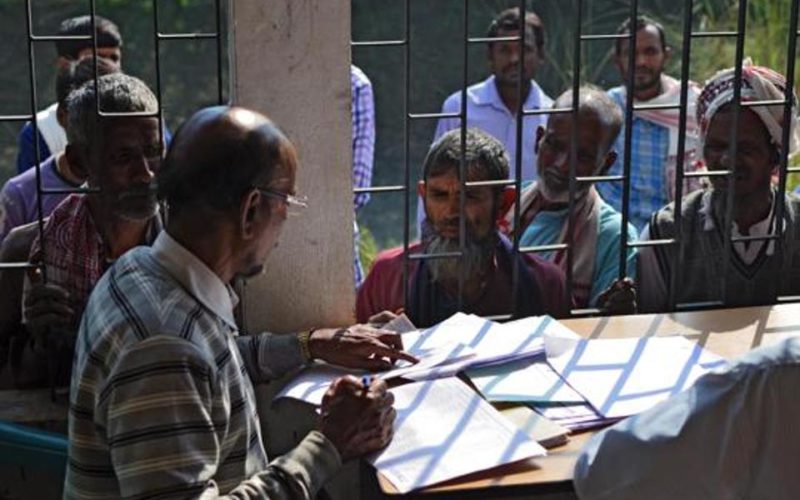New Delhi: Considering the Citizenship Act and rules, the Supreme Court on Tuesday ordered the Centre to maintain Aadhaar-like secrecy for the data in Assam’s National Register of Citizens (NRC).
In an interim order, a bench comprising Chief Justice Ranjan Gogoi and Justice Rohinton Fali Nariman said, “Only hard copies of lists of inclusions and exclusions to be provided at district offices. The NRC to be updated according to the law laid down in the Section 66A judgment.”
In its 2015 judgement, the court had struck down Section 66A of the Information Technology Act, 2000, relating to restrictions on online speech, as unconstitutional on the ground it violated freedom of speech guaranteed under Article 19 (1) (a) of the Constitution.
On July 23, the apex court had extended the deadline for the final publication of the NRC in Assam from July 31 to August 31.
Justices Gogoi and Nariman had passed the order on a plea filed by the Centre and Assam government for extension of the deadline.
The court had, however, refused to allow a plea for 20 per cent sample re-verification of those included and excluded from the NRC.
The court is monitoring the NRC exercise aimed at identifying illegal immigrants in Assam, which has been facing an influx of people from Bangladesh for decades. The NRC containing the names of Indian citizens was first prepared in 1951.
When the draft NRC was published on July 30, 2018, there was a huge controversy over the exclusion of 40.7 lakh people from it. The draft NRC included the names of 2.9 crore people out of the total 3.29 crore applications.
In the last hearing, two different issues were discussed in which senior advocate Kapil Sibal, senior advocate Salman Khurshid and advocate on record Fazeel Ayyubi represented Jamiat Ulama-e-Hind.
President Jamiat Ulama-e-Hind Maulana Syed Arshad Madani hailed the decision and said the decision is a big victory for the oppressed people of Assam. The decision has disappointment communal forces who wanted to make NRC process suspicious and was trying to create fear among public by placing various legal hurdles, he said.

